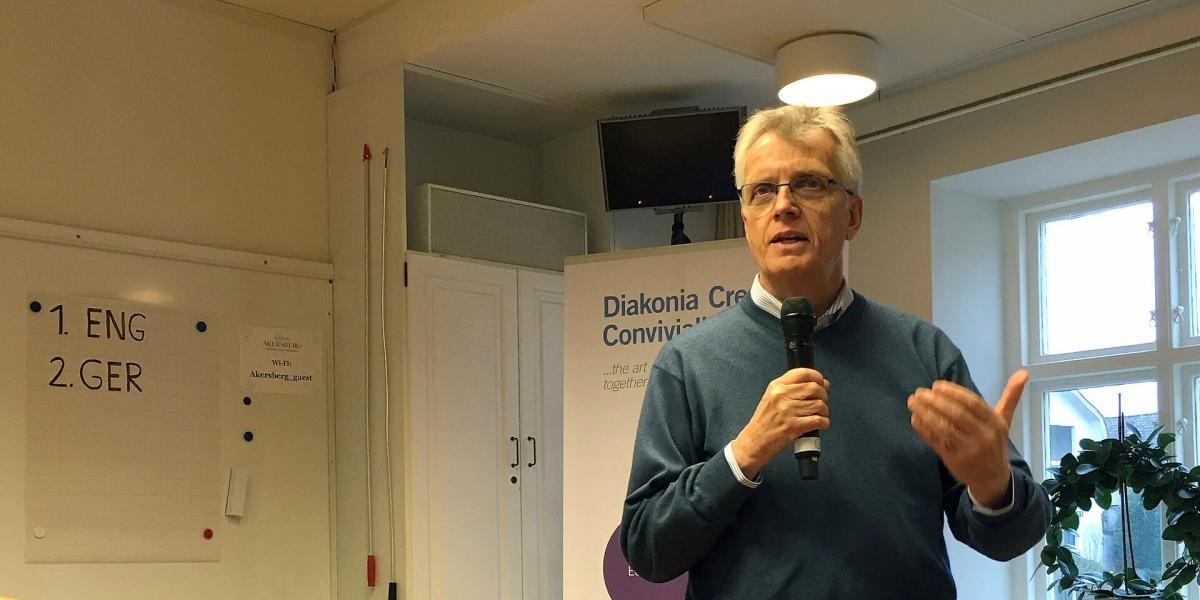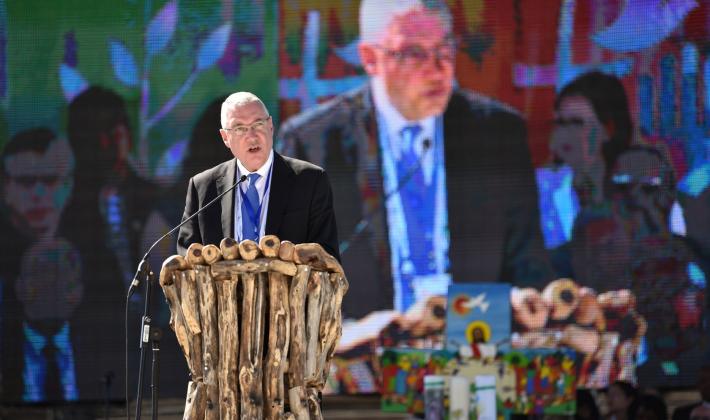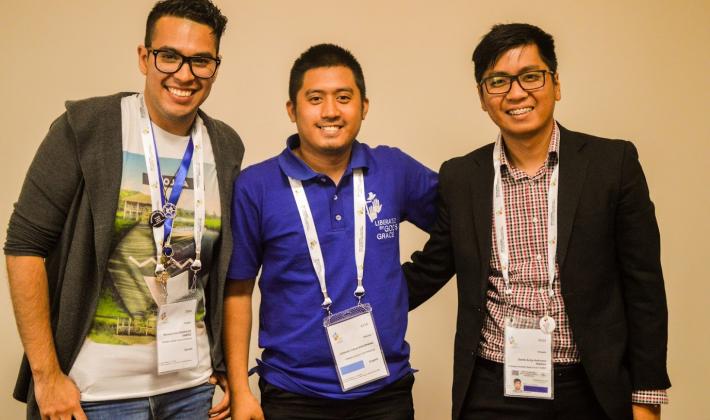
“With a passion for the church and the world – that is how we understand ourselves as a global communion of churches,” Rev. Dr Martin Junge, General Secretary of The Lutheran World Federation, said in his address to the European Pre-Assembly in Höör, Sweden, this week. In his presentation he introduced the history and identity of the LWF “as a communion in Christ, living and working together for justice, peace and reconciliation in the world.”
Founded to alleviate suffering
The General Secretary told the Pre-Assembly delegates meeting that a central vocation of the LWF when it was founded in 1947 was to bring the churches together to alleviate suffering and serve refugees and displaced people. "The LWF was founded in response to a call of faith, to come together as churches, overcoming a violent past by working reconciliation and addressing the suffering of people – to work for refugees and the human family."
He added that in the wake of the Second World War the "Lutheran churches wanted to be more than churches in separate countries, they wanted come together to jointly witness to the transforming love of God. The first call of the LWF was to serve people."
Referring to a joint statement of LWF, ACT and WCC released earlier this week Junge said that there could be no doubt that refugees fleeing from war need to be protected. This protection of the most vulnerable is a moral obligation, which is now enshrined in binding international law. He also reminded that a refugee is a refugee and has as such a right for protection, no matter his or her religious beliefs.
Lutheran churches wanted to be more than churches in separate countries, they wanted come together to jointly witness to the transforming love of God. The first call of the LWF was to serve people.
Learning from women and youth
Speaking of the journey of the Lutheran Communion throughout the years the General Secretary made special mention of the contribution of youth and women. "Youth and women and their inclusion in our journey have been a blessing," he said. The LWF has a policy of including at least 40% men and women and 20% youth in its governing bodies.
This has, he said, broadened the perspectives of the communion. To have young people as active participants has enabled a deeper understanding of a number of issues. “It is because of the input of the youth that we have our sharp focus on climate justice as an issue of intergenerational justice,” he underlined, expressing gratitude for the leadership of global young reformers in the work of the LWF.
The LWF member churches have committed through several Assembly decisions to move towards full inclusion of women in the ordained ministry. This is an ongoing journey. While knowing the different contexts and specific challenges that may arise, the communion doesn’t lose sight of this goal. Noting this, the General Secretary also said that sharing stories about the leadership of women is an integral part of commemorating the Reformation anniversary. “This anniversary represents a splendid opportunity not only tell the histories of the Lutheran churches and Reformation but also the her-stories: The stories of women and their contribution to the witness of LWF member churches and the Lutheran communion as a whole.”
On the agenda of the Pre-Assembly hosted by the Chuch of Sweden were discussions on European challenges and the role of the churches, the themes of the Assembly, an introduction to Namibia and the Namibian churches and further preparations for the Twelfth Assembly of the LWF in Namibia in May this year.


